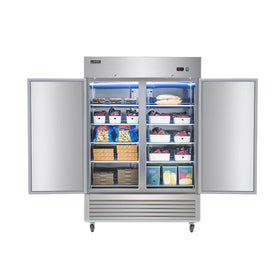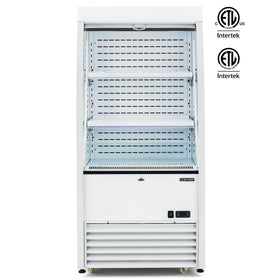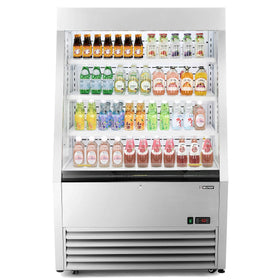When purchasing appliances and equipment for your restaurant or commercial kitchen, you’ll likely come across ETL and NSF certifications. But what’s the difference, and which certification should you look for?
In this article, we’ll explain ETL and NSF certifications, how they compare, and why properly certified appliances matter for your foodservice operation.
What is ETL Certification?
ETL stands for Electrical Testing Laboratories, a certification body that tests and inspects products to North American safety standards. ETL certification involves rigorous examination of commercial kitchen appliances to validate:
- Electrical safety features and hazard avoidance
- Heating and cooling consistency
- Precise temperature maintenance
- Durability under conditions of heat, cold, and moisture
- Ventilation efficacy
- Cleanability and sanitation
Two key ETL certifications for foodservice equipment:
ETL Sanitation - Verifies sanitary design per NSF standards ETL Testing - Validates electrical safety per UL guidelines
What is NSF Certification?
NSF stands for National Sanitation Foundation, which develops public health standards and protocols for foodservice equipment. NSF certification focuses solely on sanitation by validating:
- Materials and construction avoid bacterial harborage
- Food contact zones are isolated from contaminants
- Appliances are easily cleanable and non-toxic
- Equipment design adheres to NSF hygienic standards
NSF aims to minimize risks of viruses, bacteria, and cross-contamination through appliance design.
ETL vs. NSF Certification Compared
While ETL and NSF both certify commercial kitchen equipment, some key differences include:
| ETL | NSF | |
| Purpose | Validates Sanitation & Electrical safety | Validates Sanitation |
| Scope | Involves extensive live testing & inspection of manufacturing facilities | Primarily Design Focused |
| Administration | by Intertek | NSF |
| Marks | single mark |
Given these differences, ETL certification is considered more comprehensive since it evaluates both the electrical safety and sanitation integrity of equipment.
Why ETL and NSF Certification Matters
Foodservice appliances must perform safely and hygienically day after day in demanding restaurant environments. Improperly designed or faulty appliances can put health at risk.
ETL and NSF certifications provide added assurance that equipment will:
- Operate safely without electrical or mechanical hazards
- Maintain proper heating, cooling, and temperatures
- Allow thorough cleaning and sanitizing to avoid bacteria
- Hold up through years of heavy restaurant use
Certified appliances provide better food safety, operational consistency and reliability compared to non-certified equipment according to foodservice experts.
Choosing ETL & NSF Certified Equipment
Given the rigorous testing and standards behind certification, ETL and NSF certified appliances can cost more than non-certified alternatives. However, they are proven to support smooth restaurant operations while avoiding safety issues over time.
Wilprep recommends selecting commercial kitchen equipment carrying both ETL Sanitation and ETL Testing marks. This provides the most complete validation of both electrical safety and sanitary design.
As a manufacturer of restaurant equipment, Wilprep ensures all products are independently certified by Intertek ETL to provide customers total confidence in their performance, durability and safety. Investing in properly certified equipment is a long-term asset for your business.









